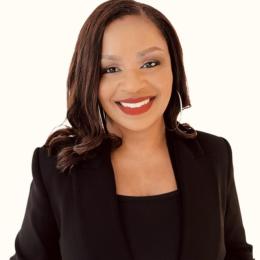
“Straight to In-house” is a new series intended to explore the trend of law school graduates beginning their careers in corporate legal departments. In the first part of this series, ACC Docket Editor in Chief Tiffani Alexander talks to Jason Churn about how he became in-house counsel at Citibank — after his law school graduation.
The path to in-house practice is a unique one. Traditionally, lawyers may make this move after a stint (or two) at a firm or perhaps following a clerkship for a judge, or work with a government agency. Some move in-house after working with a client so closely that the thought of working for them becomes more attractive. And others decide to leave law school graduation and go directly to an in-house law department. There are of course a few steps in between, which can include anything from summer programs within in-house legal departments, to law school coursework that includes mirroring an in-house counsel, and more.
No matter the path to in-house practice, the fact is that while many graduates still end up in firms initially — according to 2016 statistics compiled by the Section of Legal Education and Admissions of the American Bar Association (ABA), 45.5 percent of graduates obtained positions with law firms while 13.5 percent obtained positions in business and industry — the legal profession is changing, especially as it relates to the traditional firm model. This means that law students are considering in-house careers earlier, and many organizations are working to attract and hire directly from law schools.
In this series, ACC will explore this “trend” through interviews with — and topical articles by — new attorneys who have made the move to in-house practice, as well as the in-house counsel who hire and train them.
From the "new to in-house" counsel
In this interview Jason Churn, counsel, ICG Legal, Citibank, talks about his experiences as a first year in-house counsel at Citibank, what led him to corporate practice, and offers advice for others considering a similar career path.

ACC: Did you always aspire to be an attorney, and if not, what was your first career aspiration?
Jason Churn: Initially, I was interested in the law as a pathway to lead me into a career in law enforcement. An injury caused me to have to take a brief step back and consider other options in the legal field.
ACC: What sparked your interest in in-house practice, and did your law school offer coursework specific to corporate practice? And if so, how did it prepare you for a career in-house?Jason: My law school, Stetson University College of Law, offers a wide variety of corporate and securities related courses. I took some of these courses during my time at Stetson and the high quality of the professors teaching these courses encouraged my interest in this area.
I had to remind myself that the institutional knowledge would come the more I worked in the institution.
— Jason Churn, Counsel, ICG, Citbank
ACC: Can you tell me a little bit about your path to Citi? Does the company recruit law students and/or routinely hire interns, for example?
Jason: While I was evaluating my options for practice in the legal field, Citi happened to be moving certain portions of their legal department down to the Tampa area. Though I had interest in corporate law, securities, and finance in general, I had never really considered practicing in these fields to be an option without requiring a move out of state to a larger market — something I preferred to avoid at the time. After doing more research into the differences between working in-house and private practice, I decided that in-house was a better fit for me and I applied through Stetson’s Career Office as they had been posting the first wave of positions to be filled. Working with Stetson’s Career Office, I progressed through the various interview stages and concluded with a lengthy in-person interview with several senior members of the Citi legal department.
ACC: Tell me about your current role within Citi’s legal department. What types of things did you work on as a “first year” in-house attorney, and what projects, etc., are you focused on today?
Jason: As a first-year attorney, I practiced mainly as a product attorney in the private equity services business unit. My work at the time consisted of everything from complex commercial transactions to helping draft and implement tax agreements pertaining to FATCA, UK/CDOT, and CRS tax laws. It was a great experience in getting to work with highly sophisticated clients in an area that was constantly changing. Later on, Citi sold its private equity business and I got to work on the various corporate governance and regulatory matters that accompanied the sale of an international business unit.Since my private equity days, I have evolved to become a product attorney supporting Funds Services, Securities Custody, and occasionally, Agency Securities Lending business units. Each of these banking products contains its own unique service offerings and regulatory considerations. Among other things, my work today includes vetting and advising on the implementation of new financial products, corporate governance, managing regulatory changes and ensuring the business has adequate legal coverage in all of its different commercial agreements.
From the very beginning, my team made a conscious effort to train me and include me on as many matters as I was comfortable handling.
— Jason Churn, Counsel, ICG, Citbank
ACC: What would you say were your biggest challenges as a new attorney working within a company like Citi, fresh out of law school? What about the opportunities presented that may not have been available as a first year attorney at a firm?
Jason: Not coming from a finance background, just about everything I did starting out was relatively new to me. Understanding how a large multi-national firm operates on a day-to-day basis and where to go for specific matters or approvals was a challenge I encountered early on in my career. I had to remind myself that the institutional knowledge would come the more I worked in the institution.
ACC: What do you know now that you wish you knew on your very first day?
Jason: To be flexible. Large international businesses are constantly changing and reorganizing how they operate. This means that the work you do and who you do it with may very well change. It is just the nature of the business.
Some of the best and most successful lawyers I have worked with were never on Law Review, but are masters at communicating with senior business leaders who are pressed for time and want their options explained to them clearly and directly.
— Jason Churn, Counsel, ICG, Citbank
ACC: How were you, and other new to in-house attorneys, incorporated into the legal team? Further, how have the more senior members of your department/team helped you to grow in your position?
Jason: From the very beginning, my team made a conscious effort to train me and include me on as many matters as I was comfortable handling. My managers painstakingly went through numerous training sessions with me in order to fully develop my understanding of how things were done at the firm and how the industry operated in general. If I had a question, there was always someone available to provide meaningful guidance. This type of communal support allowed me to develop into a contributing member of the team much sooner than would have been possible otherwise.
It is the perfect time to be entrepreneurial in how you approach your work while still having the support of highly skilled attorneys to fall back on when you are unsure of how to proceed on a given matter.
— Jason Churn, Counsel, ICG, Citbank
ACC: What advice would you offer law students who aspire to begin their legal careers in-house? What can they do to prepare, and if they do land that coveted spot in a corporate legal department, what will help them stand out to top leadership?
Jason: Work on your people skills. Yes, law school grades are important starting out and everyone should strive to do their best academically, but it is equally important (especially in a large international organization like Citi) to know how to communicate with people who may come from very different countries or different academic, cultural, and social backgrounds. Some of the best and most successful lawyers I have worked with were never on Law Review, but are masters at communicating with senior business leaders who are pressed for time and want their options explained to them clearly and directly.
Once you are in an in-house role as a first-year attorney, take notes and ask questions – lots of questions. This type of role is not for those who are afraid to ask questions or stand up to be heard. In fact, you are expected to ask questions. Everyone will know that you are a first-year attorney and they will not expect you to know the answer to all or even most of the questions starting out. They do, however, expect you to learn and be engaged. It is the perfect time to be entrepreneurial in how you approach your work while still having the support of highly skilled attorneys to fall back on when you are unsure of how to proceed on a given matter. Soak up as much information as you can and be willing to help out on any matters that may come across your desk.
Read the next article in the series now, an interview with Tara Rosnell of Procter & Gamble. Tara offers a unique perspective as a lawyer who not only started her career in-house, but who has worked with new to in-house counsel as a part of an organization that hired directly from law schools. Read how this affects company culture, as well as how you can implement similar practices into your legal department.




